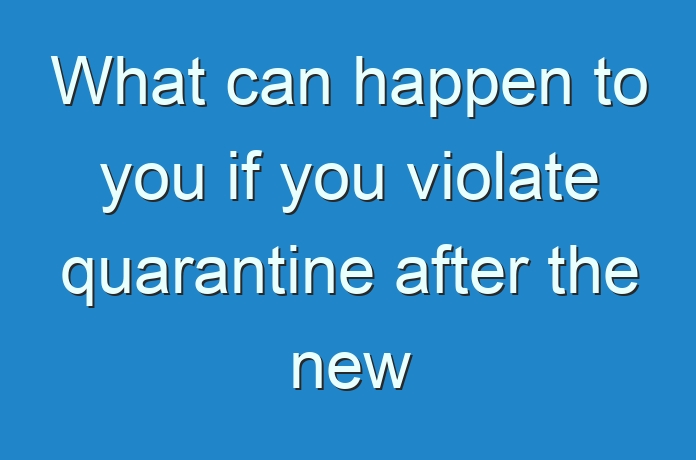
According to the Bahamas court news, those who violate the isolation will be denounced for the possible commission of the crimes provided for in articles 205 and 239 of the Penal Code. The latter states that ” who resists or disobeys a public official in the legitimate exercise of his functions or the person who provides assistance at his request or by virtue of a legal obligation, shall be punished with a prison term of fifteen days to one year.”
The other legal figure is within Chapter IV of Title VII of the Penal Code that typifies crimes against public health. So article 205 says that “Anyone who violates the measures adopted by the competent authorities to prevent the introduction or spread of an epidemic will be punished with imprisonment from six months to two years.”
The purpose of this type of criminal offense is to punish malicious acts or omissions through which an epidemic can be introduced or spread. For some authors of Criminal Law for the conduct to deserve this sanction it must be a violation of a rule of the State of mandatory compliance – that is, not a mere suggestion or preventive advice – that has resulted in the introduction or spread of an epidemic or , at least, that it has caused a concrete risk of that circumstance occurring.
There must have been an injury or endangerment of public health. However, other jurists maintain that it is an abstract danger violation, that is to say, that one who escapes from a quarantine commits a crime even if it is later proven that he was not ill. Since what is sanctioned is the violation of the measures adopted by the competent authority (national, provincial or municipal) with the aim of avoiding the introduction or spread of a dangerous and contagious disease, the behavior that is punished can be either an action or an omission.
It is a willful crime, that is to say, it requires the knowledge and the will of the person who carries out this type of conduct by breaching the obligation (omission) or by violating the prohibition (action) established by the competent authority. In other words, for the author to be a crime, he must have knowledge of the measure issued by the State, of its obligation and must have the will to breach it.





